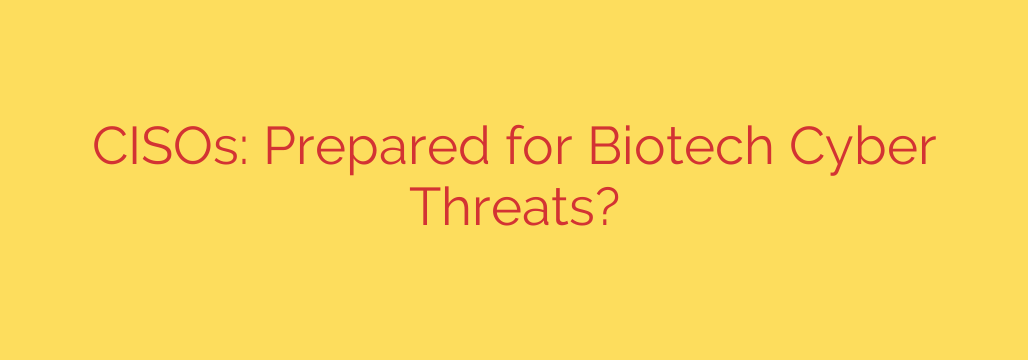
The biotech sector is experiencing unprecedented growth, driven by rapid innovation and critical advancements in healthcare and life sciences. However, this progress brings a corresponding increase in cybersecurity risks, posing unique and complex challenges for Chief Information Security Officers (CISOs) and security leaders. The question isn’t if biotech organizations will face cyber threats, but when, and are their defenses adequately prepared?
Unlike traditional enterprises, biotech firms possess exceptionally high-value assets beyond typical corporate data: intellectual property (IP) encompassing groundbreaking research, drug formulas, and genetic sequencing data. This IP is a prime target for state-sponsored actors, competitors, and cybercriminals seeking to steal, manipulate, or ransom sensitive R&D information. The potential impact of a breach goes far beyond financial loss; it could halt critical research, compromise product integrity, erode public trust, or even endanger patient safety.
Furthermore, biotech environments integrate complex operational technology (OT) within labs and manufacturing facilities. Lab equipment, bioreactors, and process controls, often with legacy systems and unique network requirements, present distinct vulnerabilities that traditional IT security models may not fully address. Securing this convergence of IT and OT is paramount, as a compromise could disrupt operations, manipulate experimental results, or affect product quality and safety.
CISOs in biotech face the daunting task of securing incredibly sensitive data and critical infrastructure within a fast-paced, highly collaborative, and often decentralized R&D environment. Researchers and scientists, while brilliant in their fields, may not always prioritize security protocols, creating potential entry points for attackers. The supply chain, involving numerous partners, contract research organizations (CROs), and manufacturers, adds layers of complexity and potential risk vectors that require rigorous vetting and continuous monitoring.
Effective biotech cybersecurity demands a specialized approach. It’s not just about protecting corporate networks; it requires safeguarding the core R&D process, ensuring data integrity and authenticity of research results, securing lab devices, and managing risks across a sprawling, interconnected ecosystem. Regulatory compliance, while a baseline, is insufficient on its own to protect against sophisticated threats targeting innovation itself.
Security leaders must focus on understanding the unique threat landscape of biotech, implementing granular access controls around sensitive IP, securing specialized lab equipment, developing incident response plans tailored to R&D and manufacturing disruptions, and fostering a strong security culture among all personnel, particularly researchers handling critical data. Proactive risk management and continuous adaptation are essential to stay ahead of evolving threats in this vital and vulnerable sector.
Source: https://www.helpnetsecurity.com/2025/06/09/cyberbiosecurity-ciso-cyber-threats/








